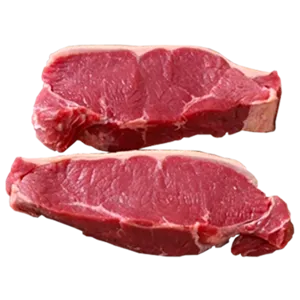Zinc is a trace mineral necessary for immune function, growth, protein and DNA synthesis, wound healing, and taste and sense perception.
• Researchers believe that the human-body contains 2-3g of zinc which though small, can support more than 300 different body functions and many Proteins in our body contain it, which makes it even more important to meet our daily requirements.
• Sexual Impotence in men (decreases spermatogenesis and impairs male fertility)
• Delayed sexual development in adolescents
• Difficulty in recognizing smells or flavours
• Decreased taste sensation (partial smell and/or taste loss)
• Lack of appetite and weight loss
• Depressive episodes
• Impaired or poor and slow growth in children
• Frequent Colds and Infections of either viral or bacterial nature
• Difficult recovery following illness
• Eczema or atopic dermatitis (a chronic Skin inflammatory disease)
• Delayed Bone formation
• Rough or pale and dull Skin
• Sudden loss of Hair
• Hypotension (low blood pressure)
• Fatigue
• White spots on fingernails
• Diarrhea
• Eye and Skin sores
• Impaired immune function and delayed Wound healing
• Reduced mental alertness
Note:
* The RDA for adult women (aged 19–50 years) is 8 mg/day and for adult men (aged 19–50 years) is 11 mg/day. The median intake of Zinc for adults exceeds the Zinc RDA (median intake for women is 9 mg/day and for men is 13 mg/day).
* Zinc reserves may deplete rapidly, because the salivary glands, the pancreas and the Prostate use it.
* Its predominantly found in muscles, red and white blood cells, in our retina, Liver, kidneys, pancreas, Bones and Skin. Rich sources of Zinc include Red Meat, seafood (such as Oyster Seafood, Crab and Lobster Fish), Whole Grains, and Zinc-fortified Breakfast cereals.
Health Benefits of Zinc









Diabetes
• It supports digestion and helps keep Diabetes under control (including stabilizing the basal metabolic rate (BMR)).
Foods & Diabetes





Immune System
• It stimulates the immune function by increasing the body’s response to bacteria and viruses and aids in sense organs regulation such as the activity of smell and taste sense organs (two important sense organs).
Foods & Immune System


Infections
• It accelerates the Wound healing process and stimulates recovery after chronic Infections and restores and enhances the body’s ability to heal itself.
Foods & Infections



Men Health
• Its adequacy is necessary for male fertility for testicular development, sperm maturation, and testosterone synthesis.
Foods & Men Health

Metabolism
• Its essential for good health as it plays a vital role in Protein synthesis and regulates the production of white blood cells as well as cell growth. It helps maintain normal blood sugar levels, stabilizes the basal metabolic rate (BMR).
Foods & Metabolism




Reproductive Health
• Zinc regulates Reproductive organs development. Sufficient dietary Zinc will increase male fertility and support conception.
Note:
* Interesting enough, the secretion of the male Prostate also consists of great amounts of Zinc.
* Its considered a fertility booster as it supports spermatogenesis (the process of producing spermatozoa).
Foods & Reproductive Health






Women Health
• It supports all the major reproduction stages for female such as fertility (because it plays a role in female sexual development, ovulation, and the Menstrual cycle), birth and lactation.
Foods & Women Health
Foods Rich in Zinc
* The Order is from the Highest Level of Zinc Concentration

1)
Chlorella

2)
African Nightshade

3)
Slippery Cabbage

4)
Pacific Oyster

5)
Wheat Germ

6)
Whole Grains

7)
Cotton Seed

8)
Sesame Flour

9)
Watermelon Seeds

10)
Hemp Seeds

11)
Hyacinth-Beans

12)
African Eggplant

13)
Poppy Seeds

14)
Pumpkin Seeds

15)
Sesame Seeds

16)
Cardamom

17)
Sesame Butter

18)
Wheat Bran

19)
Basil
(Dried)

20)
Celery Seeds

21)
Cocoa Powder

22)
Pine Nuts

23)
Cowpeas

24)
Mustard Seeds

25)
Rice Bran

26)
Black Rice

27)
Wild Rice

28)
Alaskan King Crab

29)
Mutton

30)
Agar Seaweed

31)
Cashew Nuts

32)
Caraway Seeds

33)
Red Meat

34)
Scallop

35)
Oats

36)
Almonds

37)
Yoghurt

38)
Turkey

39)
Pecans

40)
Peas



